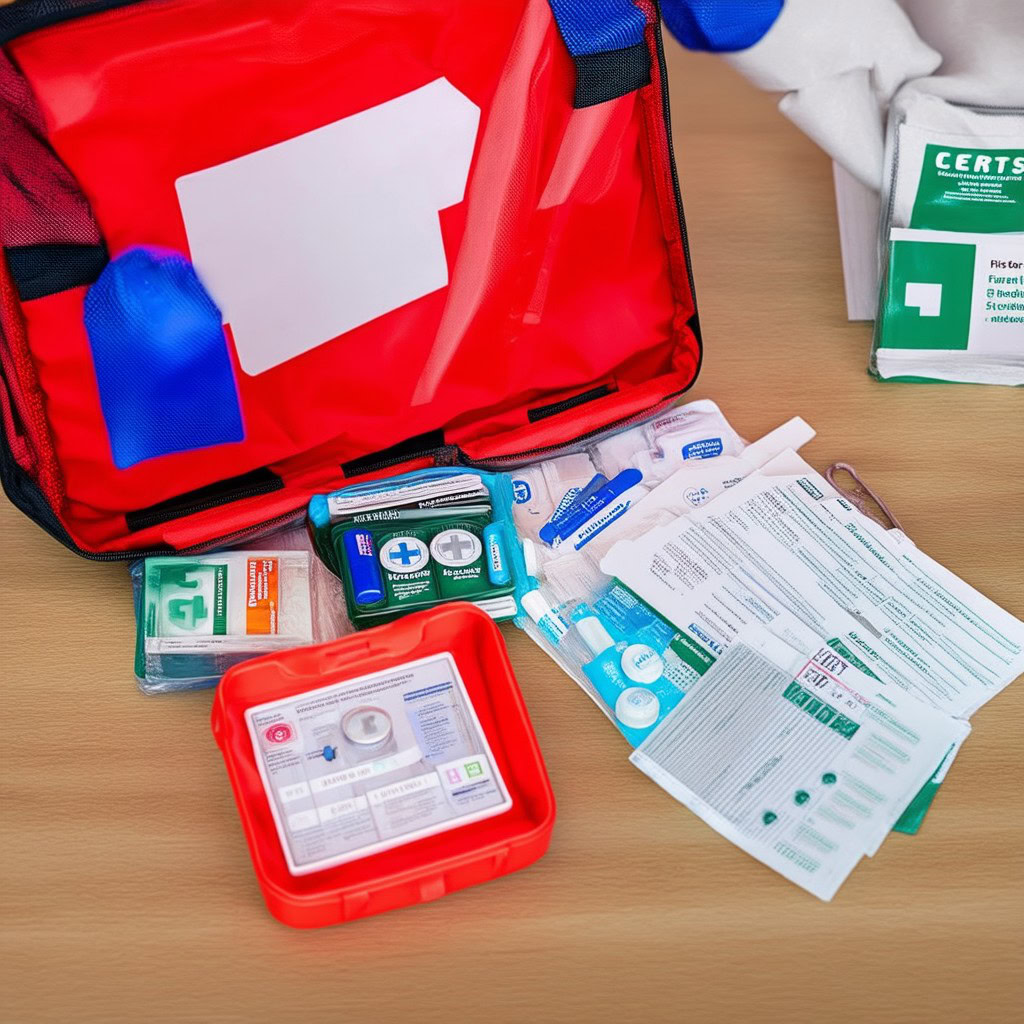Here is a 100-character meta description for your article: “Learn how to build a comprehensive first aid kit supply with essential items and supplies for treating minor injuries and accidents at home or on-the-go.” Keyphrase: “first aid kit supply” No special characters used.
When it comes to being prepared for unexpected medical situations, having a comprehensive first aid kit supply is crucial.
Building a reliable and effective first aid kit supply requires careful planning and attention to detail. By including essential items, you can ensure that you’re ready to respond to various emergencies. To start, gather a list of must-have supplies such as bandages, antiseptic wipes, and pain relievers.Next, consider adding specialized tools like splints, gloves, and tweezers for specific injuries.
Assembling the right first aid kit supply also involves thinking about the types of accidents that are most likely to occur. For example, if you have pets or children, include supplies specifically designed for them. By prioritizing these factors, you can create a well-rounded kit that covers various scenarios.By following these steps and incorporating essential items, you’ll be able to build a comprehensive first aid kit supply that’s ready for any situation.
Essential Items to Include
**Building a Comprehensive First Aid Kit Supply** **Essential Items to Include** When assembling your first aid kit, it’s crucial to include essential items that cater to various needs. To begin with, stock up on bandages and dressings. Start with basic supplies like gauze pads, roller gauze, and adhesive bandages
In addition to wound care essentials, don’t forget to add antiseptic wipes and ointments to your kit. These help prevent infection and promote healing. Next, include pain relievers like acetaminophen or ibuprofen for minor aches
Medications are also vital components of a first aid kit. Include any prescription medications you may need, as well as over-the-counter options like antibacterial ointments and antihistamines. Additionally, pack tweezers, scissors, and a thermometer for further assistance
Remember to store your first aid kit in an easily accessible location, such as a closet or cupboard. Make sure it’s stocked regularly to ensure you’re always prepared for any unexpected medical situation that may arise.
Basic Essentials for Minor Injuries
Basic Essentials for Minor Injuries ===================================== When it comes to minor injuries, having the right first aid kit supplies can make all the difference. A well-stocked kit should always include basic essentials like bandages and antiseptic wipes.
Bandages are a must-have in any first aid kit supply list. You’ll want to have a variety of sizes and types on hand, including: * Gauze pads for minor cuts and scrapes * Rolled gauze for wrapping sprains or strains * Medical tape for securing bandages Antiseptic wipes are another crucial component of your first aid kit supply. These will help prevent infection and promote healing. Additionally, it’s a good idea to include other basic supplies in your first aid kit, such as: * Over-the-counter pain relievers like acetaminophen or ibuprofen * Antihistamines for allergic reactions * Hydrocortisone cream for skin irritation Remember, when it comes to minor injuries, prevention is key. Keep a well-stocked first aid kit supply on hand and be prepared for whatever might come your way.The Essentials: Choosing the Right Medical Supplies
Here’s the section for your article: **The Essentials: Choosing the Right Medical Supplies** When building a comprehensive first aid kit supply, it’s essential to start with the basics. Firstly, you need to identify the most common injuries that may occur. Secondly, choose medical supplies that can effectively treat these injuries.
For minor cuts and scrapes, include antiseptic wipes, bandages, and antibiotic ointment in your first aid kit. Additionally, add a few sterile gauze pads for more serious wounds. Moreover, consider including tweezers for splinter removal.
When it comes to wound closure, opt for medical tape or butterfly closures. Furthermore, include a few adhesive strips for securing dressings. In terms of pain relief, carry acetaminophen or ibuprofen for minor aches and pains.Don’t forget to stock up on basic medications like hydrocortisone cream for allergic reactions and eye wash solution. Moreover, consider including any personal medications that may be needed in an emergency.
Lastly, include a first aid guide or manual to ensure you’re using the medical supplies correctly.Essential Items to Include in Your First Aid Kit
Essential Items to Include in Your First Aid Kit
A well-stocked first aid kit is crucial for any household or workplace. To ensure you’re prepared for unexpected accidents and injuries, start with the basics. Bandages are a must-have, including gauze pads, rolled gauze, and band-aids in various sizes. Additionally, include antiseptic wipes to clean wounds and prevent infection. These can be used on minor cuts and scrapes, as well as larger wounds. Furthermore, add antibiotic ointment to the kit for deeper cuts and abrasions. Other essential items to include are pain relievers like acetaminophen or ibuprofen. Aspirin is also a good addition, especially in cases of heart attack or stroke. For minor aches and pains, consider adding topical creams like hydrocortisone cream. In the event of allergic reactions, have epinephrine auto-injectors on hand, such as EpiPens. And don’t forget to include any personal medications that may be necessary in an emergency.


Check out our Road Trip Section!
The Essentials of a Well-Stocked First Aid Kit Supply
**The Essentials of a Well-Stocked First Aid Kit Supply** A well-stocked first aid kit supply is crucial for any situation.
First and foremost, it’s essential to have bandages in various sizes. Assorted band-aids are also vital.
In addition to bandages, antiseptic wipes are a must-have. These prevent infection and promote healing. Moreover, antibiotic ointment should be included.
Pain relievers like acetaminophen or ibuprofen are necessary for minor injuries. Anti-diarrheal medication is also important for upset stomachs. Furthermore, any medication taken regularly should be in the kit as well.
Other crucial items include gauze pads and rolls, medical tape, and tweezers. Additionally, scissors and a thermometer can come in handy.
Stocking Your First Aid Kit: A Final Checklist
Stocking Your First Aid Kit: A Final ChecklistSection
